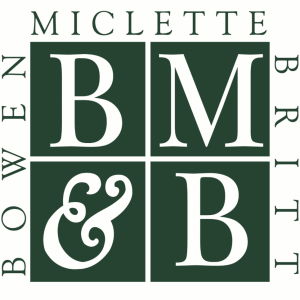
Starting a business can feel somewhat like walking off the edge of a cliff. You’ve left your comfort zone, you’re flying blind, and it’s all too easy to misstep and fall. That’s why it’s critical to understand the risks you’re taking, including how they could affect your business, and how to cover them in case the worst happens.
What Is The Best Insurance for Startups?
Every business owner needs small business insurance, but many aren’t sure what coverages are right for them and their organization. It’s recommended that you start with general liability, workers’ compensation and commercial auto coverage.
Types of Business Insurance for Startups
Here’s a list of some insurance products you should consider as you take on risk:
Business Owner’s Policy (BOP)
A Business Owner’s Policy (BOP) is a packaged insurance program that protects your business and its assets against specified causes of loss.
It protects your assets from both physical damage and liability claims that can arise from accidents on the premises or in the workplace. It can be a convenient way to package all the necessary policies needed to protect your business in one program.
For example: if a guest slips in your restaurant and breaks his/her leg, you may be liable for any damages resulting from it. A BOP will help protect you from any third-party liabilities such as medical bills or legal defense in these situations.
General Liability Insurance for Startups
General liability insurance can be one of the most crucial forms of coverage for businesses. It covers legal costs, settlements and judgments associated with third-party bodily injury or property damage arising from your company’s operations. If you are sued due to a covered loss, general liability serves as a defense to protect your business interests.
Provided that you have enough coverage in place to cover incidents involving bodily injury or property damage (and if you don’t have enough coverage, then it’s time to call Bowen, Miclette & Britt), general liability will reimburse you for expenses like:
- Third-party bodily injury
- Property damage

Commercial Property Insurance
Commercial property insurance is an important coverage to have in place in case your startup has damage to its assets. The kind of property you insure depends on the type of business you’re running and what it has at stake, but the general idea is to make sure that if something happens to the building or equipment your company needs to operate, you will be able to replace it and keep moving forward.
There are many types of commercial property insurance coverage. A few to highlight include;
- Building insurance (also called “structural coverage”) covers damage like fire and windstorm/hail;
- Business income coverage pays for lost revenue caused by a covered loss, plus extra expense
- Off-premises Business Personal Property coverage extends beyond normal limits when certain conditions are met—for example, if a hurricane strikes Florida where your product is, but not at your headquarters.
Workers Compensation Insurance
Workers compensation insurance is a type of coverage that pays for medical bills, lost wages and other expenses when an employee gets injured on the job.
It’s different from general liability insurance in that it covers only injuries suffered to your employees while at work. General liability covers third-party-related accidents. Workers compensation also differs from health insurance because workers’ comp applies specifically to on-the-job accidents rather than any other type or location of injury or illness.
Commercial Auto Insurance
Commercial auto insurance covers losses resulting from accidents involving your company’s vehicles. This differs from personal automobile insurance, which protects you and your family members (but not your business) in the event of an accident. It can also provide coverage for your employees who run errands or other job-related travel when the auto is not owned by the company.
Commercial auto insurance coverage includes:
- Bodily injury liability/personal injury protection (BI/PIP)
- Property damage liability/comprehensive physical damage (PDL/CPD)
- Hired and Non-owned Liability
Planning to scale or sign larger contracts? Commercial umbrella insurance can extend your liability limits beyond your general liability and auto policies.

Professional Liability Insurance
Professional liability insurance covers you for the cost of defending yourself in a lawsuit, as well as any court costs incurred. It can also help protect your finances if a client files an unsuccessful claim against you for monetary damages. Professional liability policies offer protection against claims related to negligence, breach of contract, and other errors & omissions.
If professional liability coverage is right for your business, it will cost little for small startup businesses like yours—but it’s worth it in case something goes wrong down the line.
Cyber Liability Insurance for Startups
Cyber liability insurance covers the cost of a breach to your company’s data. This can include lost business and revenue, legal defense costs, data restoration and credit monitoring for affected clients.
While cyber liability coverage is often included in general business liability policies, it’s advised to purchase a separate policy because of the unique nature of cyber-attacks. The coverage provided by many general business liability policies makes them insufficient for startups with sensitive or proprietary information stored online.
It’s important to review the part of your policy which deals specifically with computer fraud before purchasing an additional policy that covers only cyber security risks. If your startup handles customer data or uses cloud apps, consider cyber liability insurance to help cover breaches, ransomware, and regulatory costs.

Small Business Insurance Consultants
With all this information about the different startup business insurance policies and coverage options available for startups, you should be able to make an informed decision about which policies are best for your business. Take the time to fully evaluate your needs and discuss them with a trusted agent at BMB who can help you find the right insurance solution that fits within your budget.
Get A Quote Today
We’ll work with your team to determine the best coverage option for your business. Protect your investment and get a startup business insurance quote now.

